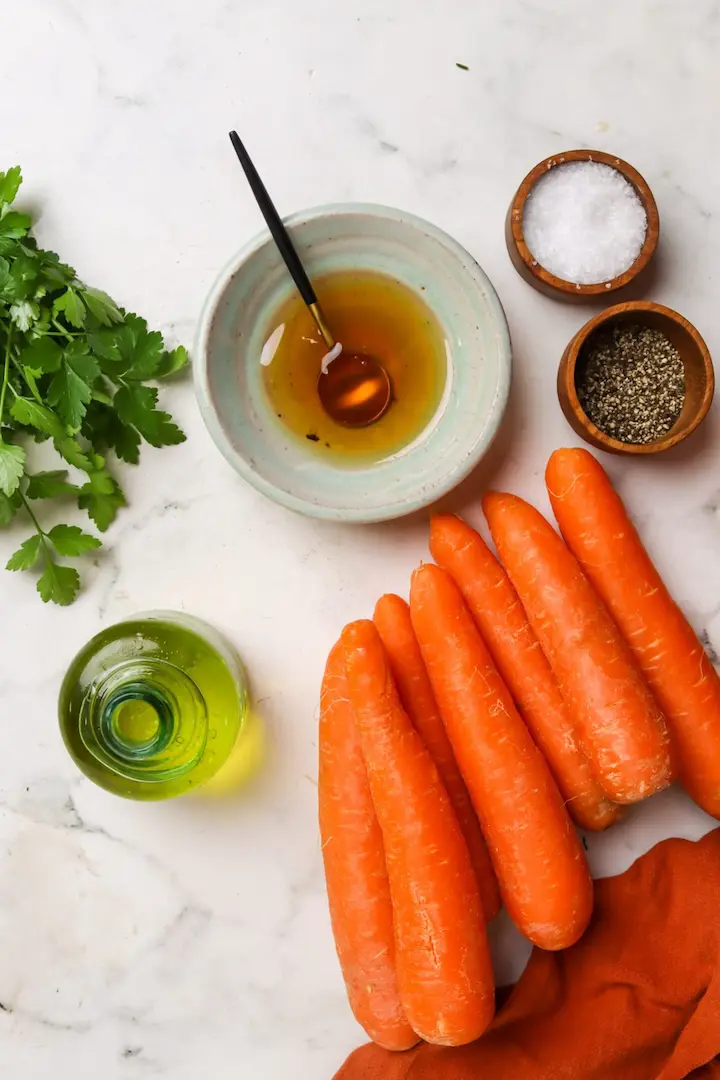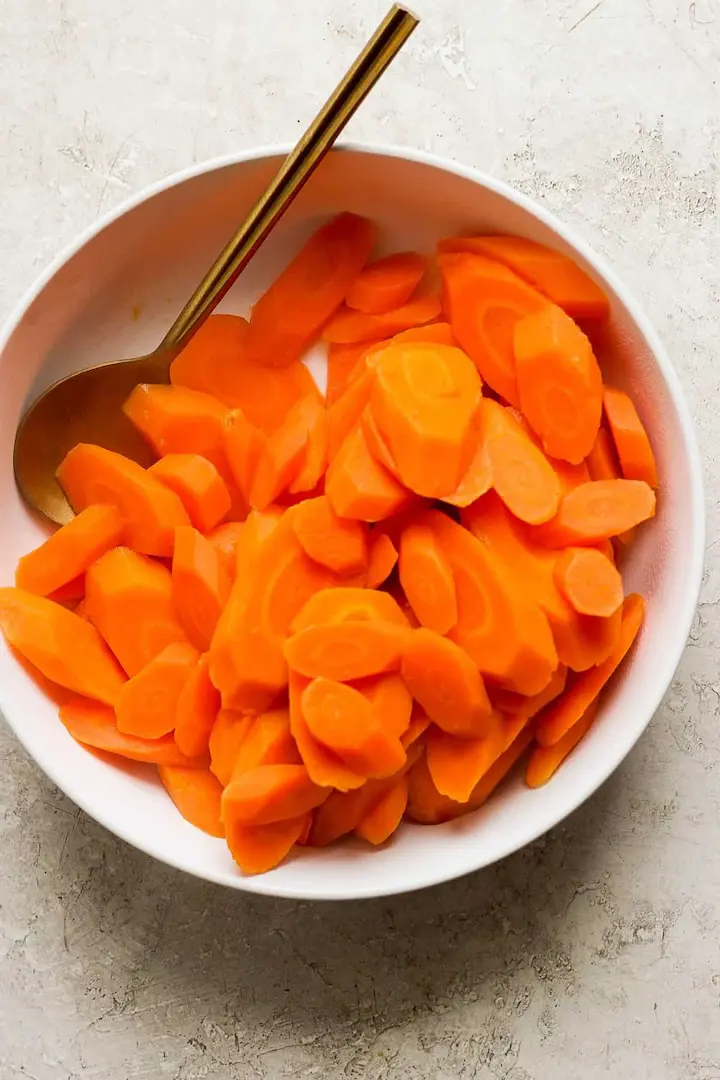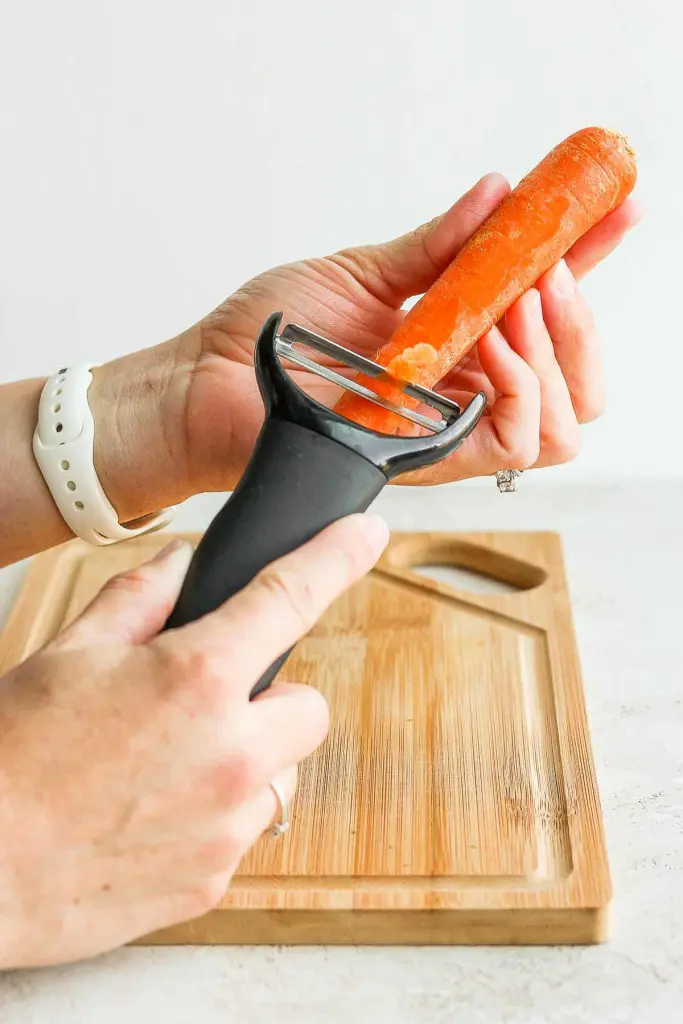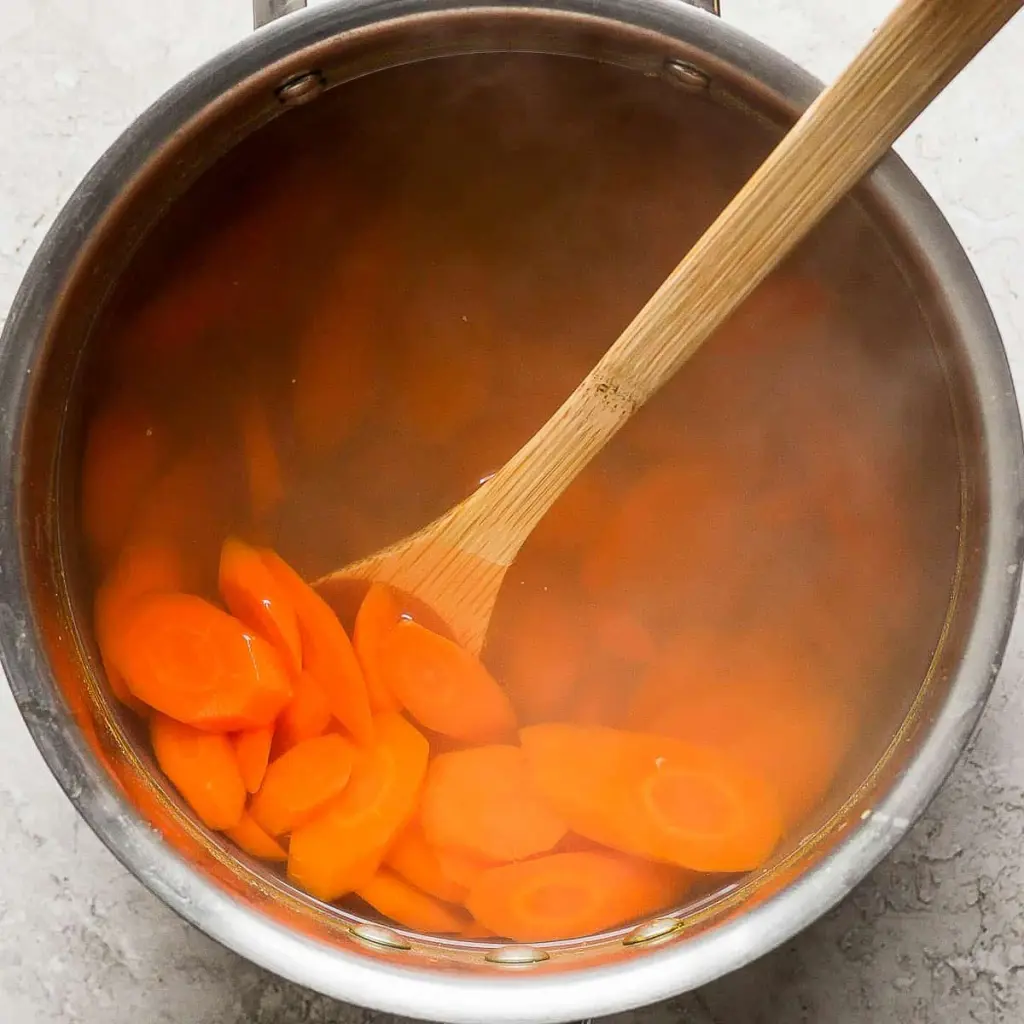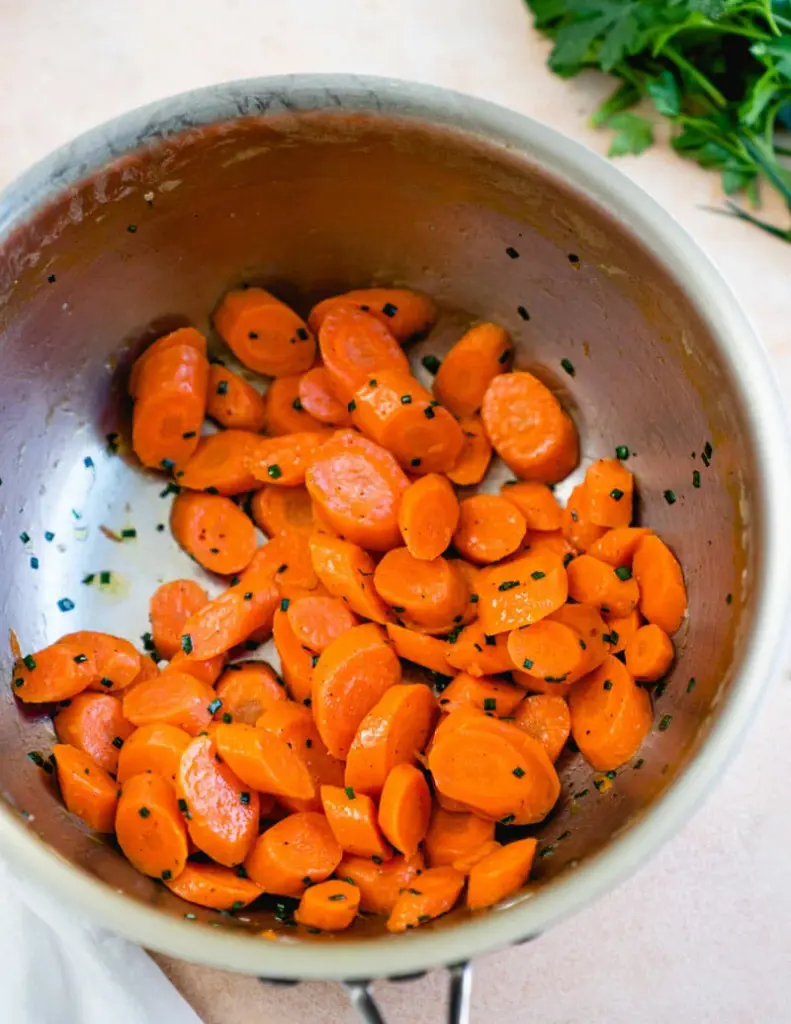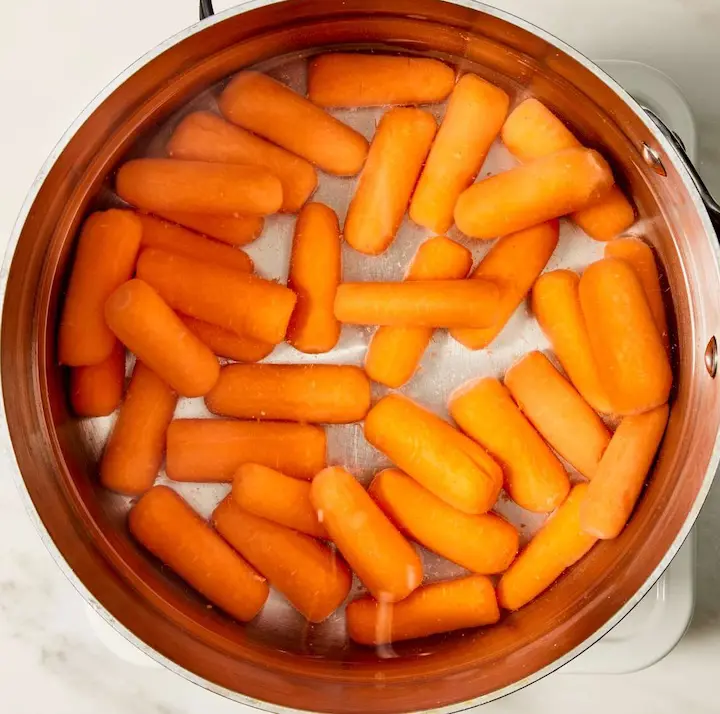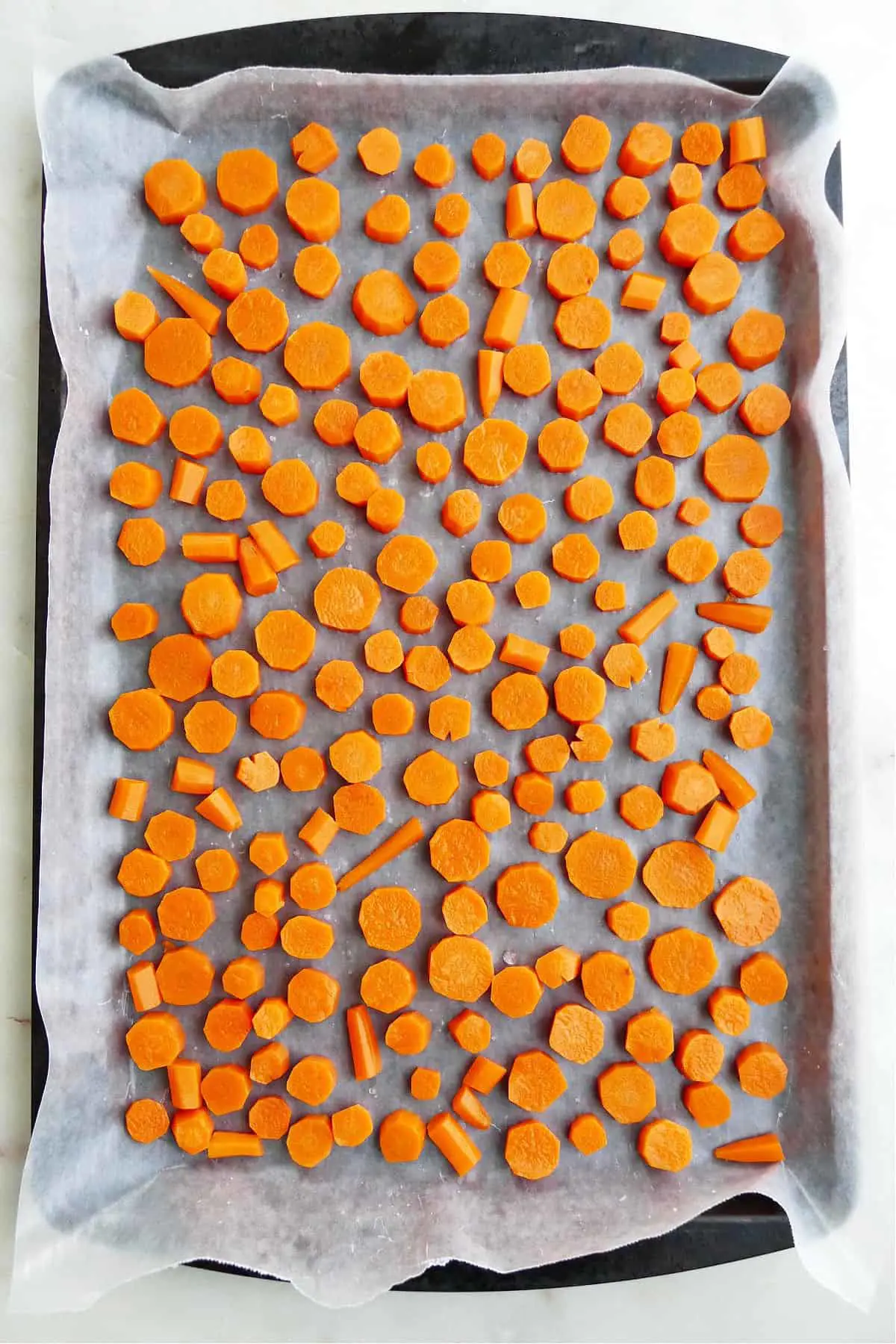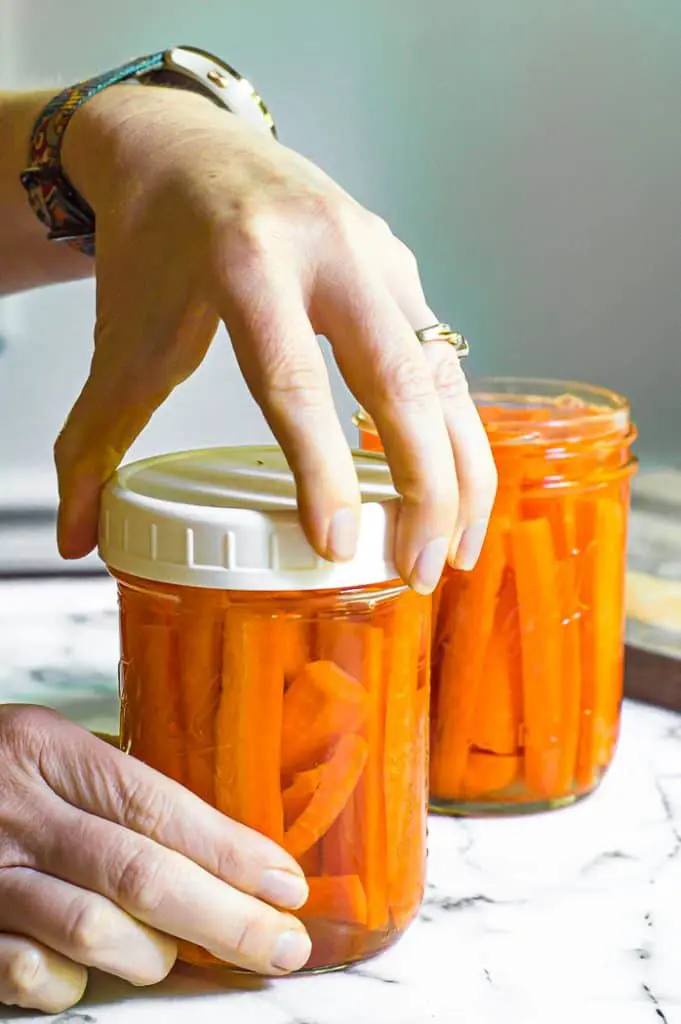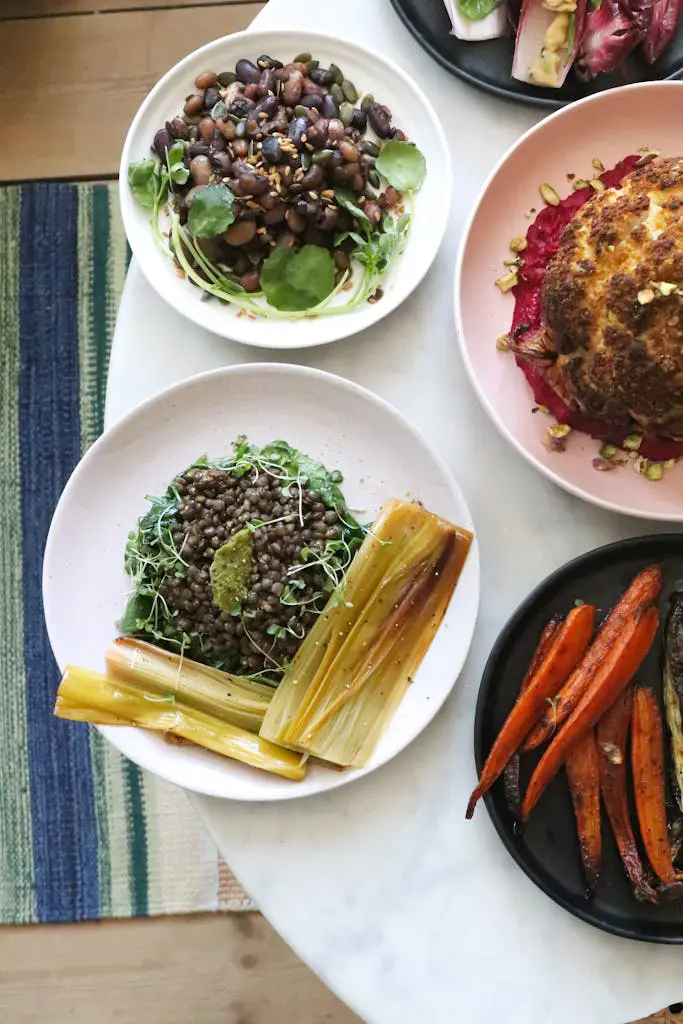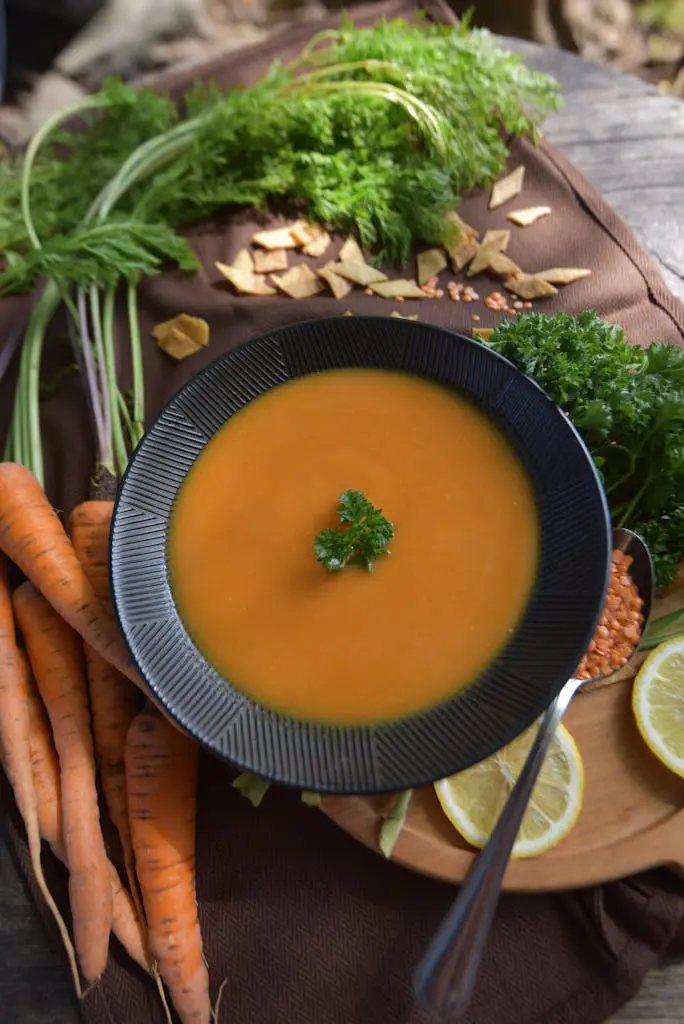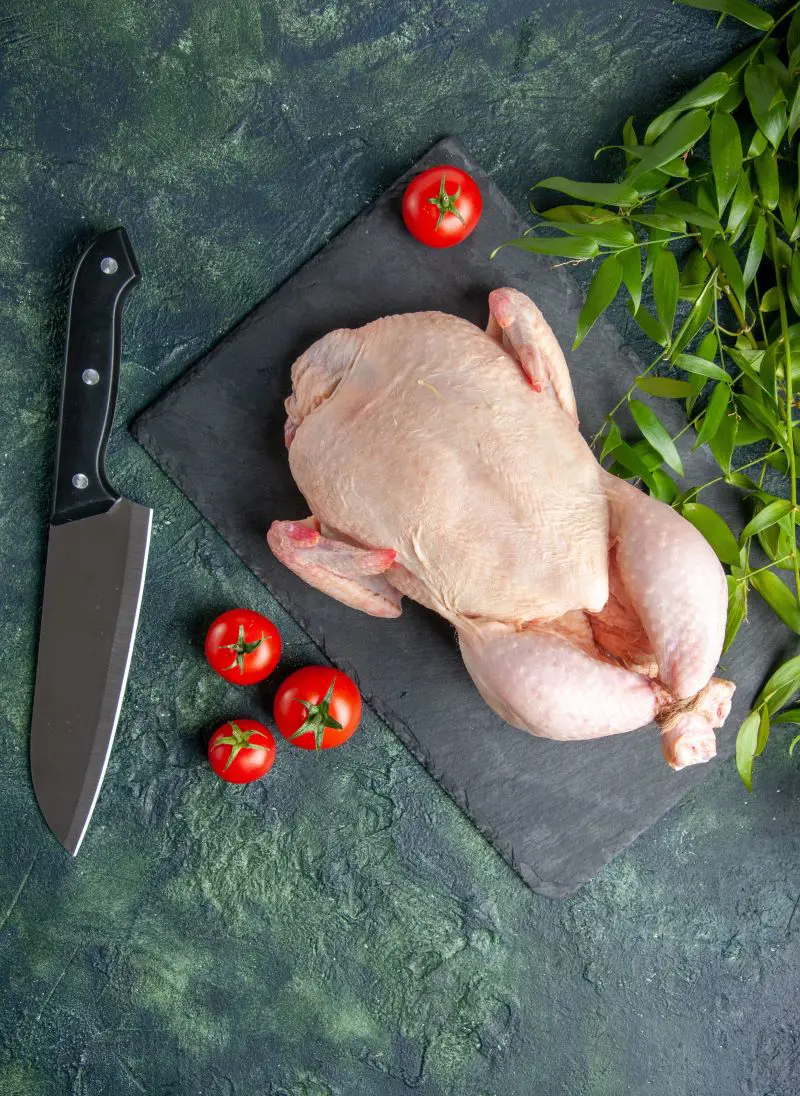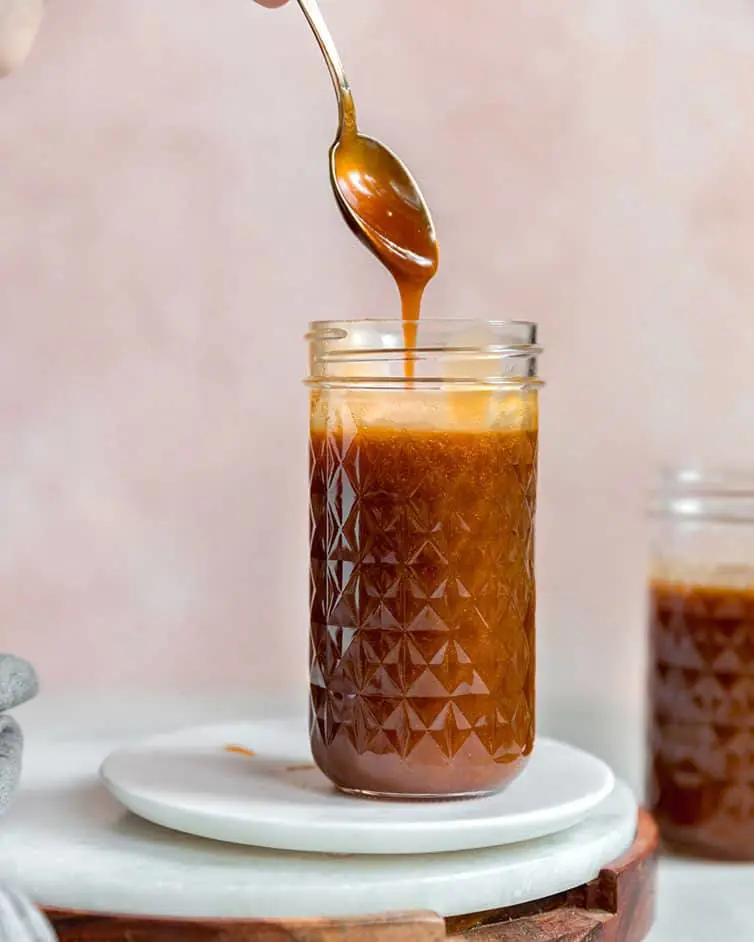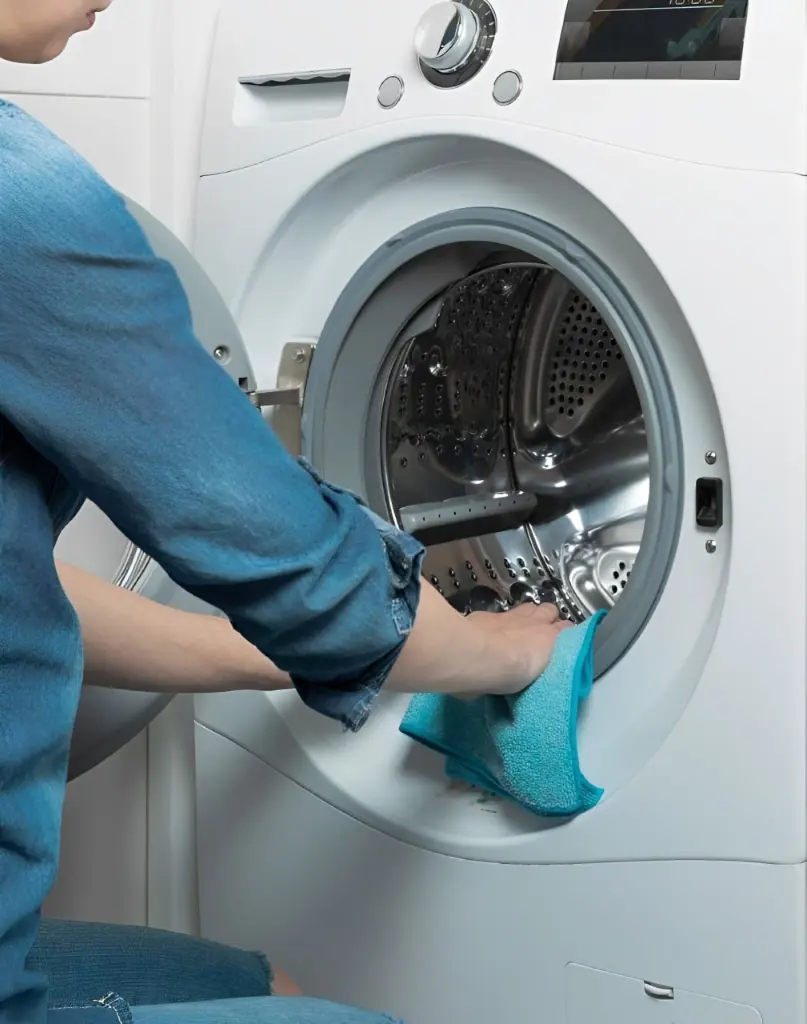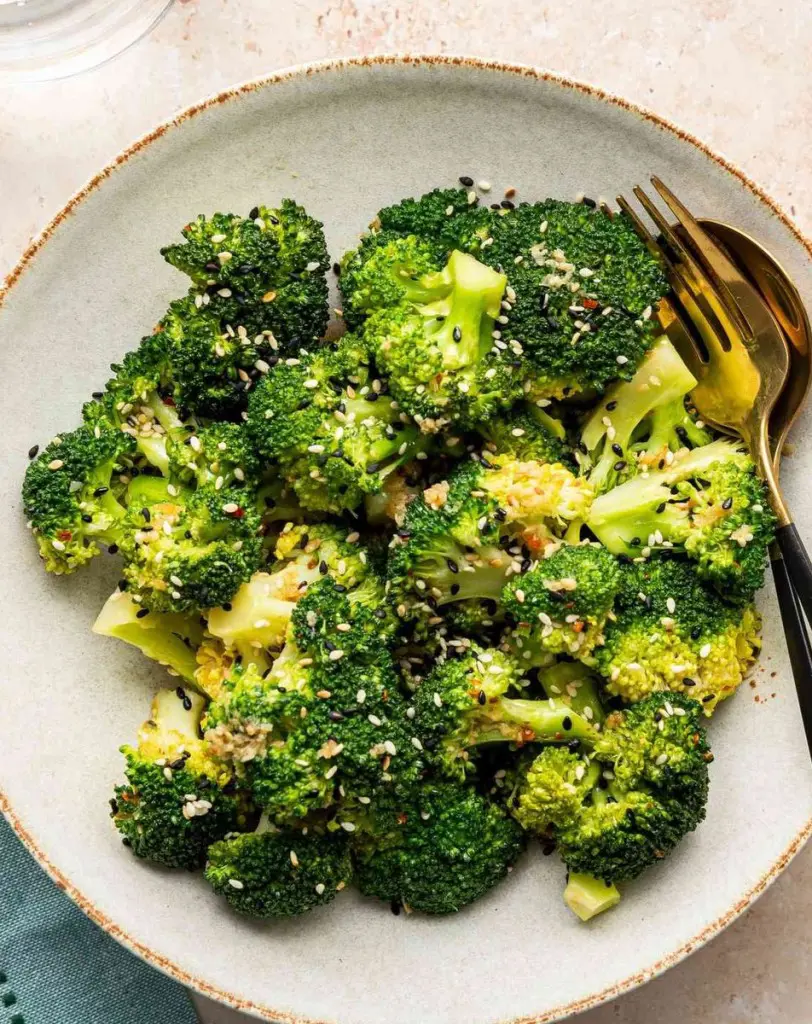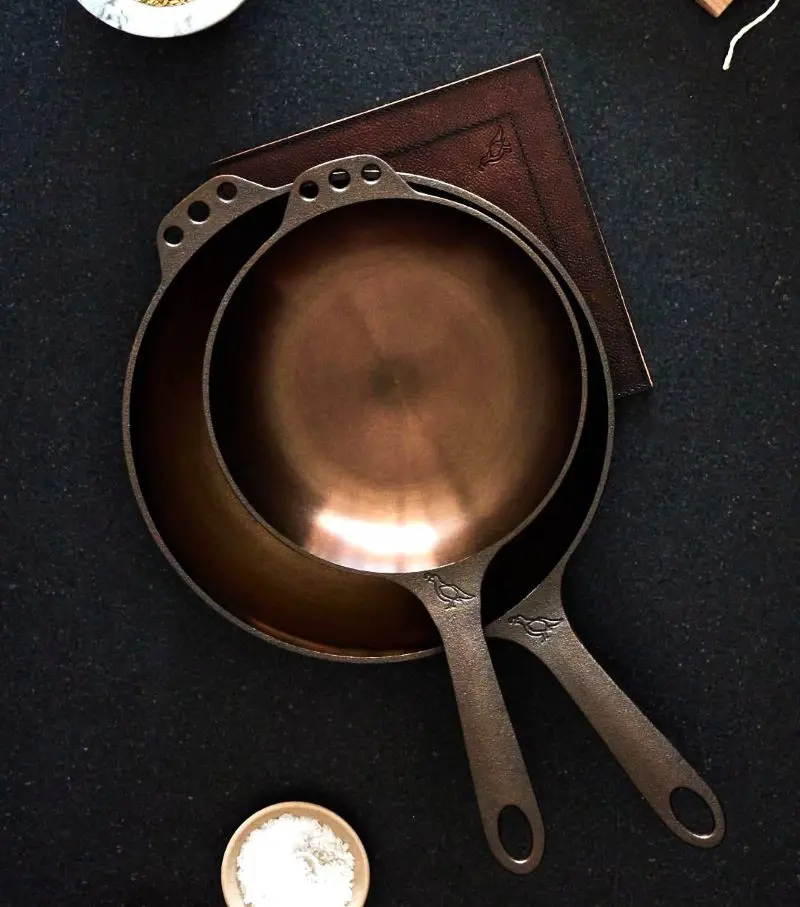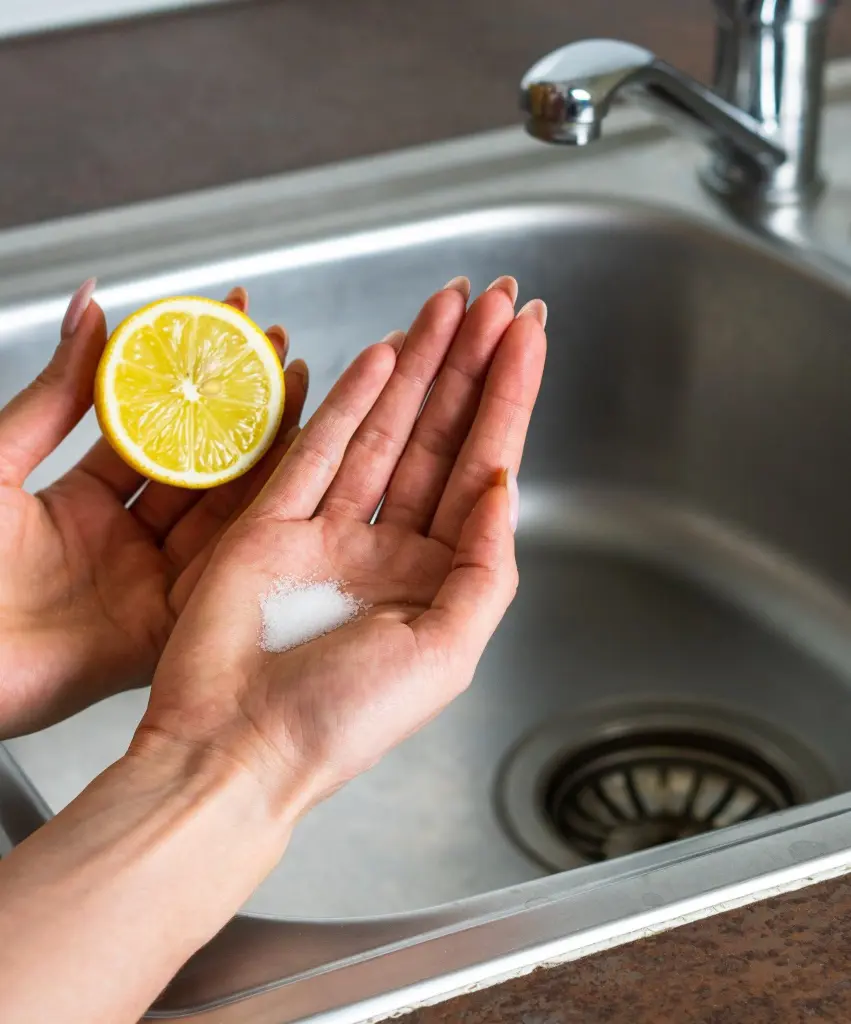Ingredients To Boil Carrots
Carrots
Large carrots are ideal for this recipe. They're readily available in stores and offer a good balance of flavor and texture. Long, slender bunches of carrots are also suitable and may cook faster due to their thinner size.
For visual appeal, rainbow carrots can be a colorful option. It's best to avoid baby carrots as their flavor tends to be overly sweet and less complex than full-sized carrots.
Butter or Olive Oil
Both options work well to add richness and enhance the carrots' flavor. Butter imparts a richer, more savory taste, while olive oil is a great choice for vegan or dairy-free preparations.
The fat also helps to carry flavors and improve the overall mouthfeel of the dish.
Salt & Black Pepper
Proper seasoning is crucial for bringing out the carrots' natural flavors. Salt enhances the sweetness of the carrots, while black pepper adds a subtle heat and depth. The right balance of these basic seasonings can significantly elevate the taste of the dish.
Chives or Other Herbs
Chives complement the sweet flavor of carrots particularly well with their mild, onion-like taste. However, you can experiment with various fresh herbs to suit your preferences. Other herbs that pair well with carrots include parsley, dill, thyme, or rosemary.
Maple Syrup (Optional)
For those who enjoy a sweeter taste, a drizzle of maple syrup can enhance the carrots' natural sweetness. This addition creates a nice balance between savory and sweet flavors. The syrup also adds a subtle complexity that plain sugar doesn't provide.
